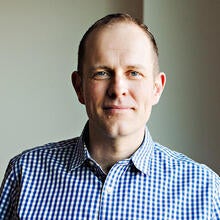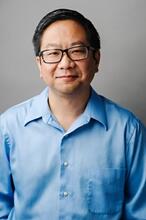Our donors make possible research that improves, and sometimes even saves, lives.  That may sound like an exaggeration, but it’s true. Case in point: Steve Cheng (BMath ’77), Founder, Chair and Executive Director of Telefield International (Holdings) Limited, generously funded research that is making possible more precise and effective surgical plans.
That may sound like an exaggeration, but it’s true. Case in point: Steve Cheng (BMath ’77), Founder, Chair and Executive Director of Telefield International (Holdings) Limited, generously funded research that is making possible more precise and effective surgical plans.
You may remember this story from 2020, featuring the research of Jochen Koenemann and Ricardo Fukasawa. Koenemann and Fukasawa were developing innovative algorithms to help surgeons at SickKids treat craniosynostosis, a potentially life-threatening disease that afflicts 1 in 2,500 infants. To correct craniosynostosis, infants must undergo a difficult five-hour surgery when still under a year old. The surgeon makes precise cuts in the baby’s skull and then rearranges them in a new, more typical  shape, one that gives the brain room to grow.
shape, one that gives the brain room to grow.
In the past, surgeons were forced to rely solely on intuition to make appropriate cuts, but Koenemann, Fukasawa and their partners at SickKids sought to make the decision-making process more scientific and ultimately more efficient and accurate. Koenemann and Fukasawa first developed a precise mathematical model that captured the most critical aspects of the surgery and then, with the model in place, began developing an algorithm. But to wrap up the project, they needed the help of a Waterloo donor.
Waterloo alum accelerates progress
Steve Cheng was inspired by Koenemann and Fukasawa’s work and made a generous donation of over $150,000 to help the team advance the project. Cheng’s support was crucial in surmounting numerous challenges, including ones related to optimization, engineering and software development.
Specifically, he enabled the researchers to hire a full-time engineer, Chris Woodbeck, who created a seamless user interface for their algorithms.
This interface allows hospital staff to import patient data and automatically create printed templates easily. Surgeons can take these templates with them into the operating room, simplifying the surgical task of finding correct cut positions.
The funding also enabled the team to hire six students who helped create a craniosynostosis platform that enables hospitals to treat their youngest patients in a more timely, effective and precise manner.
Koenemann and Fukasawa say:
Without exaggeration, the progress we have made through the last few years would not have been possible without [Cheng’s] support! Through [his] donation, we were able to create a cross-discipline team that allowed us to achieve our goal of helping kids that are born with craniosynostosis lead a better life. It has been a great honour to be able to carry this research forward and do this work that shows just how marvellous mathematics can be!
Koenemann and Fukasawa say this particular project with SickKids is now complete, but that the impact of the research lives on. Thanks to their work, we could one day have algorithms for other surgical procedures.
See our invest in us page to learn how you can support the Faculty of Mathematics.






